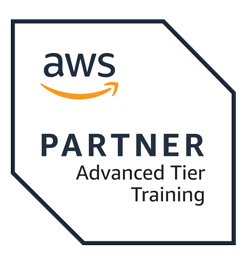DevOps Engineering on AWS teaches you how to use the combination of DevOps cultural philosophies, practices, and tools to increase your organization’s ability to develop, deliver, and maintain applications and services at high velocity on AWS. This course covers Continuous Integration (CI), Continuous Delivery (CD), infrastructure as code, microservices, monitoring and logging, and communication and collaboration. Hands-on labs give you experience building and deploying AWS CloudFormation templates and CI/CD pipelines that build and deploy applications on Amazon Elastic Compute Cloud (Amazon EC2), serverless applications, and container-based applications. Labs for multi-pipeline workflows and pipelines that deploy to multiple environments are also included.
Apart from public, instructor-led classes, we also offer private in-house trainings for organizations based on their needs. Call us at +852 2116 3328 or email us at [email protected] for more details.

In this course, you will learn to:
We recommend that attendees of this course have:
This course is intended for:
This course will be delivered through a mix of:
This course will cover the following concepts:
Day 1
Module 0: Course overview
Module 1: Introduction to DevOps
Module 2: Infrastructure automation
Module 3: AWS toolkits
Module 4: Continuous integration and continuous delivery (CI/CD) with development tools
Day 2
Module 4: Continuous integration and continuous delivery (CI/CD) with development tools (continued)
Module 5: Introduction to Microservices
Module 6: DevOps and containers
Module 7: DevOps and serverless computing
Module 8: Deployment strategies
Module 9: Automated testing
Day 3
Module 10: Security automation
Module 11: Configuration management
Module 12: Observability
Module 13: Reference architecture (Optional module)
Module 14: Course summary
AWS Certified DevOps Engineer – Professional